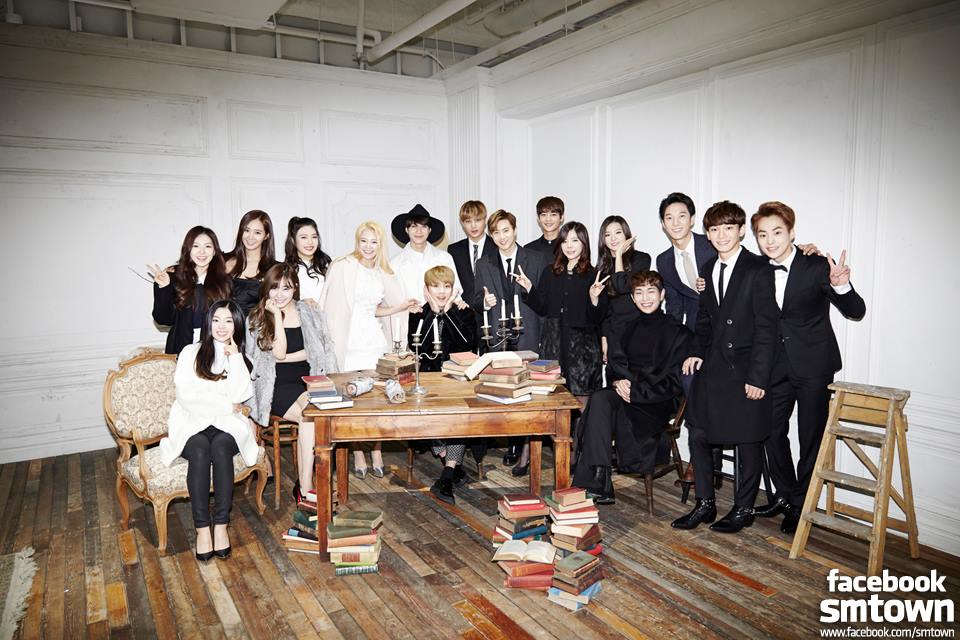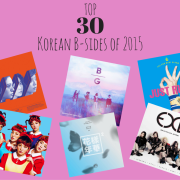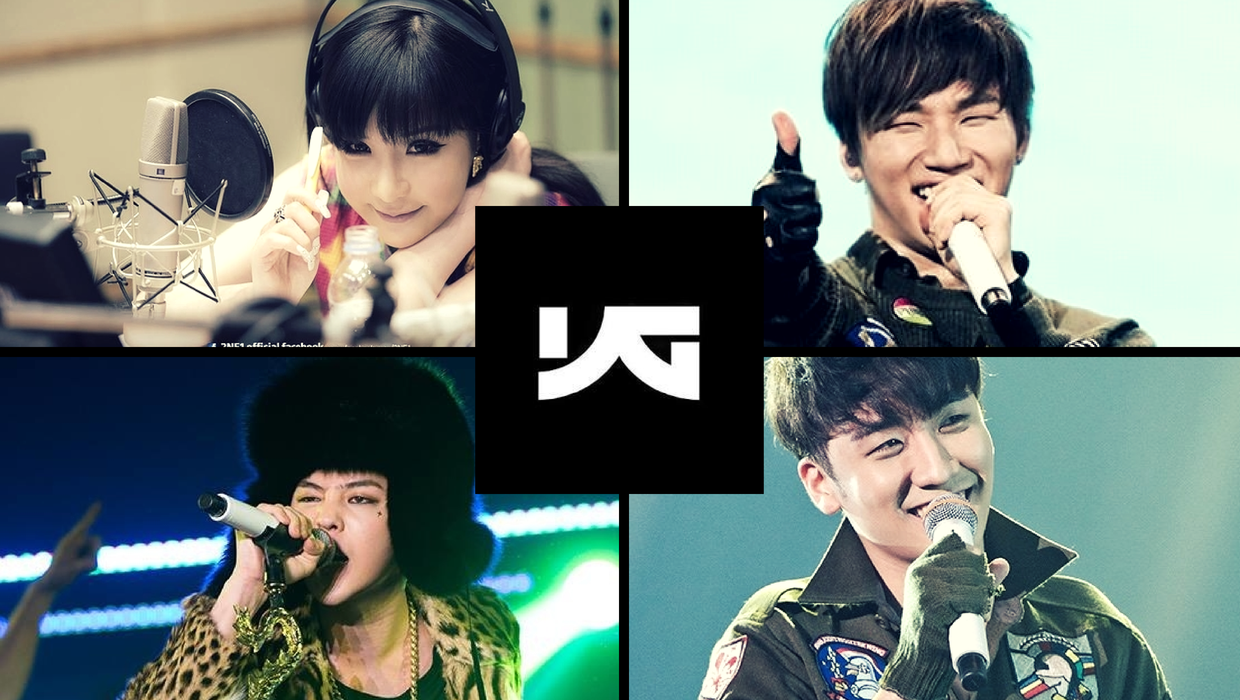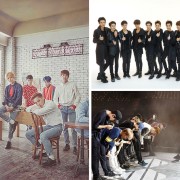SM Entertainment: The ‘Brand’
A few weeks back I wrote about the idea of authenticity that YG Entertainment uses to sell its artists. While I stand by most of my opinions, I feel it comes across as too one sided. I was ready to slam YG and I didn’t stop to consider the ideals of other companies. By other companies I really mean SM Entertainment. They are the yang to YG’s yin. My YG article clearly misses that yang, there is a sense that I prefer a different approach to the YG one, but don’t touch on it. I don’t know if I prefer the approach, but I do prefer SM’s music, so that probably influenced my opinion.
The Asian idol system is a thoroughly transparent one. Fans are allowed to see all elements of how an idol comes to be, their extensive training in not just singing and dancing but acting, PR, and fitness. It is not an entirely glamorous regime, but it’s what it takes to be a star. This transparency means, however, that fans are also under no illusion as to the creators of the music and its authenticity. SM makes no attempt to hide this or push their artists beyond this. So why is SM so popular and yet have no discernible musical figureheads?
Another writer on KultScene got to the heart of this when she wrote about how SM and Disney are very similar companies. It wasn’t totally positive either, equating the recent controversies of SM to Disney’s own troubles with diversity and such. In the context of the companies actual content though, for me, it boils down to the “brand.” These companies are loyal to their brand and what will make their brand the most money. SM has time and again shown that the overall company is more important than any individual. From apparent slave contracts to over-worked idols, no company has had as many high profile departures than SM. The amount of cases show it be a serious problem for young idols and show a lack of understanding from an imposing company.
While groups like Shinhwa and Fly To The Sky left SM after their contracts expired and achieved much success, leaving SM Entertainment prior to the end of the contract has meant difficulties.
The worst of all, of course, is the case where three members left former-quintet TVXQ, which left Junsu, Jaejoong and Yoochun (who formed JYJ) unable to attend any Korean television programs. If they do, the station that shows them will potentially not get any SM coverage in the future, losing the station a ton of potential viewers. So JYJ is essentially blacklisted (although Junsu just performed for the first time on television in six years, thanks to EBS.)
Also on KultScene: What Will SM Entertainment Look Like In 2015?
Like Disney, people have grown to essentially worship the brand of SM. Even after all these controversies, loyalty remains and the fans nearly always side with the group and not the individual. This sort of attitude can lead to a company becoming a Disney-like juggernaut, and that’s a problem. If SM continues growing and accumulating smaller companies, like Woollim Entertainment, they can build a possible monopoly. This might not seem so bad since Woollim has been proceeding business as usual with their affairs, but they’re still under SM’s control. If this continues, the whole Korean music industry would revolve around SM, making it possible that if SM goes under, so does all of K-pop.
Let’s steer away from the dramatics for now and back to a real, current problem for SM: the treatment of individual stars. Maybe it’s not a problem, but just a clear difference in style to YG. Emblematic of SM’s love of the brand, they prioritize cohesive groups over individual talents. It was actually listening to F(x)’s Pink Tape and realizing how replaceable they are as a group that gave me the idea for this article. Yet I still think it is one of the best full length albums in K-pop history. Apart from TVXQ and to a lesser extent, SHINee, all of SM’s groups feature members that could be left out and would make no difference to the quality of their music. Similarly, no group has a defining creative head like G-Dragon, CL or even Bobby, whenever iKon debut. Even TVXQ who are possibly the most talented group in K-pop history, do not have a creative head, merely extremely proficient singers and dancers. This lack of strong individuals shows SM are not interested in people who leave the group or company, in order to shine on their own right as solo artists, overshadowing their previous SM-related efforts. When one of them threatens to possibly do this, they are swiftly taken care of, like former Girls’ Generation member and head of fashion line Blanc & Eclare Jessica Jung.
What about the music these large, anonymous groups are releasing though? This is where it gets tougher to pin SM down. SM is known for creating songs it dubs SMP, SM Music Performance. This is a type of song that is created together as a complete song and performance, which cannot be separated. Essentially, these are incredibly complex songs that go above and beyond what a pop song is expected to be. Examples are SNSD’s I Got A Boy and TVXQ’s Rising Sun. What’s really interesting though is that these are the type of songs that big brands would never dream of releasing. They play with structure in strange ways and swap genre without any notice. Pop songs were designed to lull you into security, make you feel at ease so you won’t go against the system. SM does the opposite and its makes for an interesting case.
To find out why SM does this though, is not easy to find out. We can look at the producers of the songs. A lot of them are outside producers, people like Teddy Riley, Will Simms and The Stereotypes. SM would not let them produce such weird tracks without their consent though, and probably would have even specifically picked out songs like this. This comes across as more of a negative in reality, as it makes SM seem uninterested in even their own artistry not just their groups. Always using outside producers gives them an image of business people rather than musicians, but this is not wholly true either. There are many in house writers and producers like Yoo Young Jin, who has worked on almost every great SM song since its inception.
Also on KultScene: Artist Spotlight: DaeNamHyup
My last and most likely theory has more to do with the Korean public than the music itself. South Korea did not have pop music as we know it until 1992 when Seo Taiji and The Boys burst onto the scene with their musical fusion. They mixed rap, metal, dance, and many more genres to create something never heard before in the country. At the time they used this music to criticize Korean society (see Gyosil Idea,) which Seo Taiji still does to this day, and it worked thanks to the genre mashing and structure bending forms of their songs. They were so popular, however, that this style of music eventually became commonplace in K-pop. So maybe SM’s songs today are not as strange and revolutionary as I thought, but merely the norm in the country.
One thing I can be sure of though is that SM Entertainment and YG Entertainment have completely different ideologies when it comes to their brand. Of what I have written about, they do share at least one thing in common, having lots of great, artsy teasers, but not delivering with the final product (WINNER for YG and EXO for SM) and I hate them both for it. Ultimately, I don’t know what side I come down on in favor anymore. I prefer SM’s music, but I don’t respect any of their individuals as much as I respect CL and her brazen individuality amongst idols. Either way I’m supporting a big brand whose only goal is to make lots of money.
Let’s support neither of them. Go find a smaller company whom you can get behind and encourage by rewarding quality music and artistry with your support. Like Chrome Entertainment, home of Crayon Pop, whose DIY attitude is already changing K-pop or Source Music who have been accused by netizens of making deals with journalists so G-Friend can get on the charts or any other of the large number of smaller, less corporate companies currently struggling to stay afloat.
What do you think of SM Entertainment’s system? Who do you prefer SM or YG? Share your thoughts in the comment section below and be sure to subscribe to the site and follow us on Facebook, Twitter, Instagram, and Tumblr to keep up with all of our posts.
[This article was updated on April 21, 2015.]












